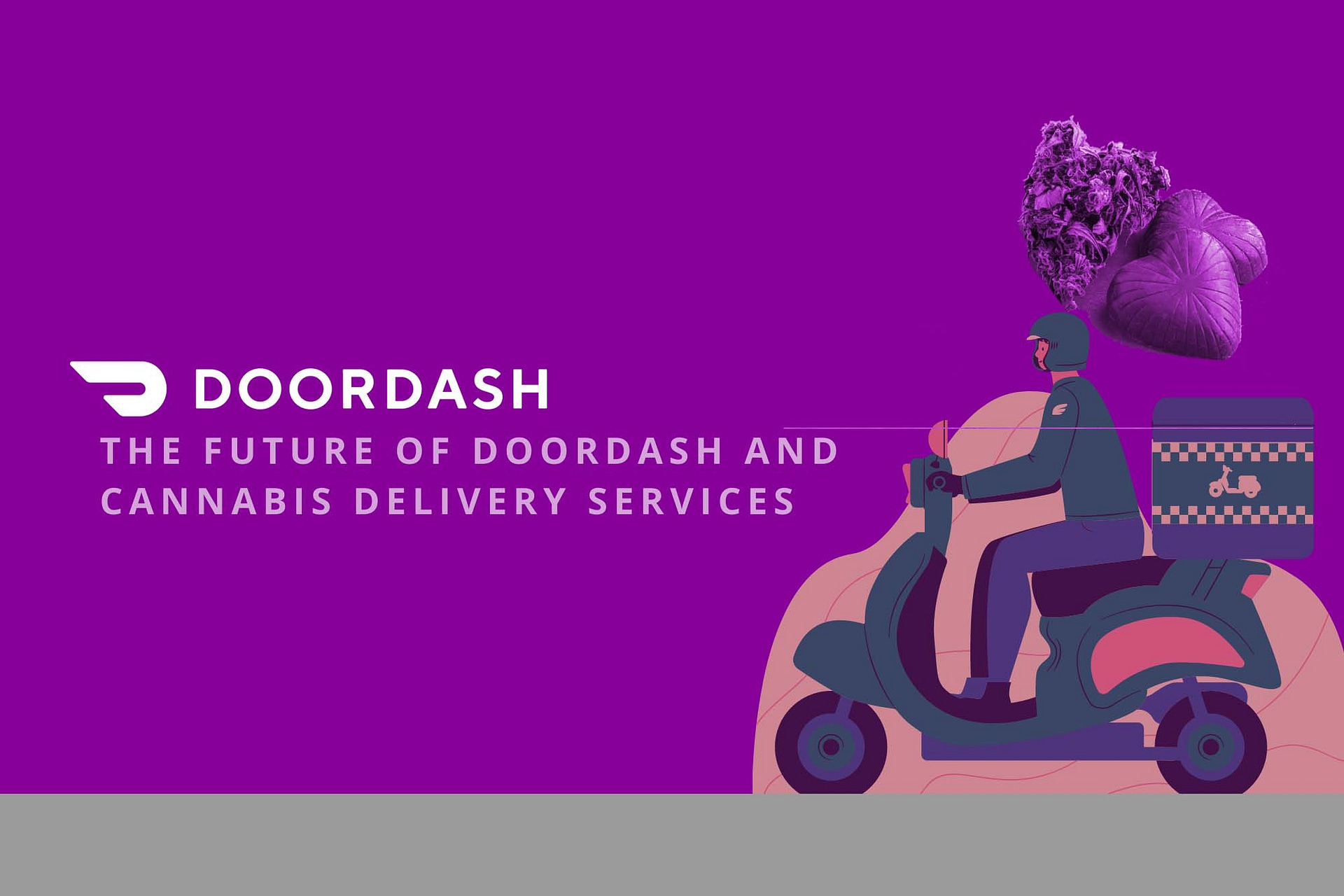Since the pandemic, Canadians have gone all in on cannabis delivery. Doordash, Uber Eats, Dutchie, and Buddi are all third-party service providers that make it simple for brick and mortar cannabis retailers to evolve with changing consumer expectations — without the investment into purpose-built technologies.
What does the future of delivery look like for cannabis retailers? With more provinces getting on board with the idea, big delivery names like Doordash and Uber Eats are getting involved. But will these services burden retailers as they have for the restaurant industry?
The Pandemic Changed Consumer Expectations
Delivery of everything took off during the lockdowns. From groceries to alcohol to takeout, consumers quickly pivoted to ordering delivery instead of heading out into a world infected by COVID-19. As a result, food delivery apps doubled their profits during the first year of the pandemic.
Before the pandemic, there was no such thing as cannabis delivery (at least in Canada). Provincial legislation (generally) prohibited the delivery of pot products from retailers to at-home consumers. But then COVID struck. Several provincial governments shifted this regulation temporarily to help thwart black market dealers from carving out new customer segments.
Not only did this allow cannabis retailers to stay afloat by continuing sales, it ensured cannabis — deemed an essential service — could still reach the consumer. Originally, most cannabis delivery legislation was temporary, set to expire with lockdowns. But, now, many of these legislative changes are here to stay.
Wider Access to Cannabis Delivery Across the Country
Slowly, more provinces have started changing their anti-delivery laws to adapt to the changing consumer climate. The big delivery experiment, which played out in BC and Ontario during the pandemic, has shown governments that its not only safe but also economically beneficial.
In August 2020, BC adopted the temporary cannabis delivery legislation permanently. Ontario followed suit in March 2022.
Alberta, which has notoriously strict online sales protocols, also adopted broader digital sales this year. The change allowed for delivery by the licensed retailer or a common carrier (Canada Post or courier). Other provinces also have some form of pot delivery, including Saskatchewan, Manitoba, and Quebec.
Big Names Enter into Canadian Cannabis Delivery Game
As bigger markets like Ontario and BC legalized cannabis delivery, cannabis e-commerce platforms like Buddi and Dutchie pivoted to incorporate this new service into their roster.
These TechPOS compatible solutions already were integrated into real-time inventories and click-and-collect services, so it only made sense for these companies to expand into delivery.
But, as of 2022, two prominent household names have introduced a delivery component: Uber Eats and Doordash. Both companies got their start delivering restaurant food to at-home customers. They hire contractors through the gig economy rather than employ full- or part-time staff. These delivery companies operate much like Uber and Lyft, which are ridesharing apps.
According to Business Model Analyst, Uber Eats and Doordash dominate most of the food delivery market. However, these two companies are notoriously competitive. In the past, they have slashed prices and built loss leaders into their marketing strategy, all to grab market share.
For consumers, this competition always meant better prices, but for the retailer, it doesn’t always prove beneficial — beyond the strategy of serving more customers.
Doordash and Uber Eats have partnered with specific cannabis retail franchises before launching full force into each legal market. In Ontario, Superette and Starbud partnered with Doordash, and Uber Eats connected to Tokyo Smoke.
Technically, neither of these global food delivery services has offered delivery options. Instead, these limited partnerships with licensed retailers provide consumers access to an in-app store, where cannabis may be ordered for pick up.
The Future of Canadian Cannabis Delivery
Despite the tentative first steps into the cannabis sector in Canada, many expect that Doordash and Uber Eats will soon introduce full-blown delivery to any retailer that signs up for their model.
This will inevitably provide consumers with much more convenient access to recreational cannabis — but what will it do for retailers? As Eater described, these apps “subsidized the “true” cost of delivery, making it cheap for consumers while squeezing restaurants with high fees and pocketing courier tips.”
Will these convenient third-party services like Doordash create the same burdens among cannabis retailers that restaurants have been experiencing?
Does it make more sense for cannabis retailers to sign up for third-party food delivery companies? Or incorporate delivery-friendly e-commerce platforms — like Buddi and Dutchie— into their roster of options? As cannabis is a highly regulated substance, it’s difficult to predict how the delivery wars will play out.
Yet, one thing is certain: delivery cannabis is here to stay. It’s just uncertain what the best service option is from a retailer’s perspective.





